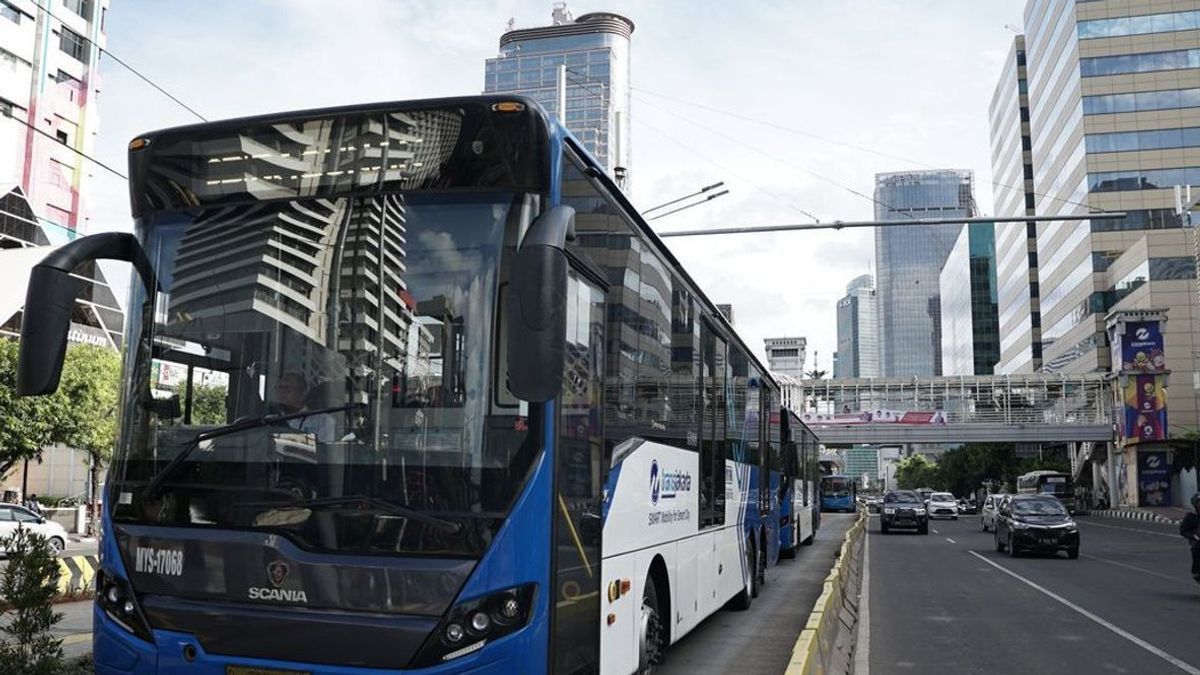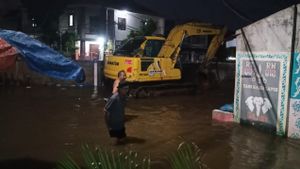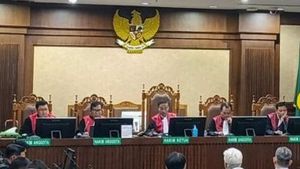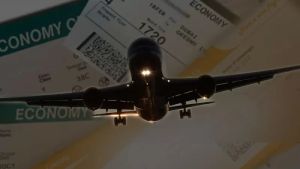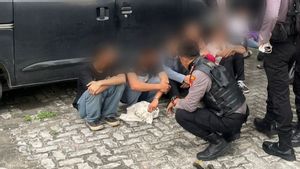JAKARTA - The cause of the recent Transjakarta bus accidents is still a mystery. Currently, PT Transjakarta BUMD is collaborating with the National Transportation Safety Committee (KNKT) to investigate.
In the early stages of a thorough audit of the Transjakarta bus accident, so far the KNKT has highlighted one thing that has been highlighted, namely the human factor or the condition of the Transjakarta bus driver while driving. Driver conditions that may occur during a bus accident range from negligence to exhaustion.
Regarding the driver's condition, Member of Commission B of the DKI DPRD, Gilbert Simanjuntak, admitted that he had received complaints from a number of Transjakarta drivers that they often worked overtime.
Then, to trick the number of overtimes, bus operators who are partners with Transjakarta move the driver's work route from one bus route to another.
"The driver complained that their shift was too long. It was too long, sometimes they were moved from one track to another, so they wouldn't find out that he (the driver) was overtime," Gilbert told reporters, Tuesday, December 7.
Gilbert had time to ask the drivers why they did not report to Transjakarta. Based on the driver's confession, they will be punished with dismissal if caught complaining.
"I asked, why not protest? They said 'the salary will be cut and the contract won't be extended'," explained Gilbert.
Similarly, the chairman of the Jakarta Transportation Workers Union (SPTJ) Jan Oratmangun admitted that the Transjakarta bus drivers did work overtime.
This is what causes drivers to often feel tired, apart from driving a bus on a route with a narrow and straight lane. Thus, some accidents are often unavoidable.
"Ideally, it's 8 hours of work, but the facts on the ground are that there are also friends of our drivers who work more than 8 hours," Jan said when contacted, Thursday, December 9.
One form of overtime work that is accepted by the driver is the distribution of changing shift work schedules. Bus operators often provide driver schedules with a jumping system.
"For example, today's driver enters the afternoon, tomorrow he jumps again in the morning. That's roughly the factor that triggers driver fatigue," he said.
In addition, sometimes Transjakarta bus drivers who have finished their duties to drive buses according to schedule still cannot return home. They, said Jan, had to stop at the gas station to do their refueling before they could park the bus at the depot and then go home.
"Sometimes, the driver's friends finish their duties in the corridor, they have to stop at the gas station to do refueling as well and queue for hours," said Jan.
However, the statement of the driver who often gets overtime work is denied by the President Director of Transjakarta, Mochammad Yana Aditya. "There is no (driver) who (works) for more than 8 hours. According to the SOP. Nothing," said Yana.
So far, Yana admitted that her party is still waiting for the results of the internal evaluation and audit from the KNKT to find out the cause of the Transjakarta bus accident for further evaluation.
"We will evaluate it later. We all have the same perception here. Don't let us provide different information here. Therefore, we share the same perception of the evaluation factor. Is it humans, the fleet, or the environment, namely the road fleet," he added.
The English, Chinese, Japanese, Arabic, and French versions are automatically generated by the AI. So there may still be inaccuracies in translating, please always see Indonesian as our main language. (system supported by DigitalSiber.id)
